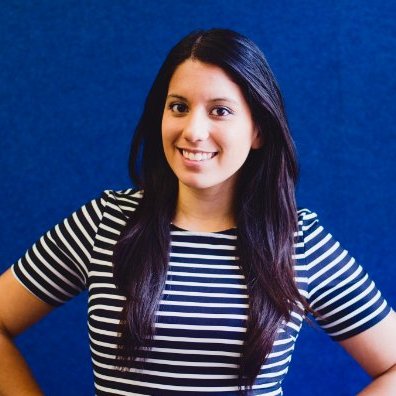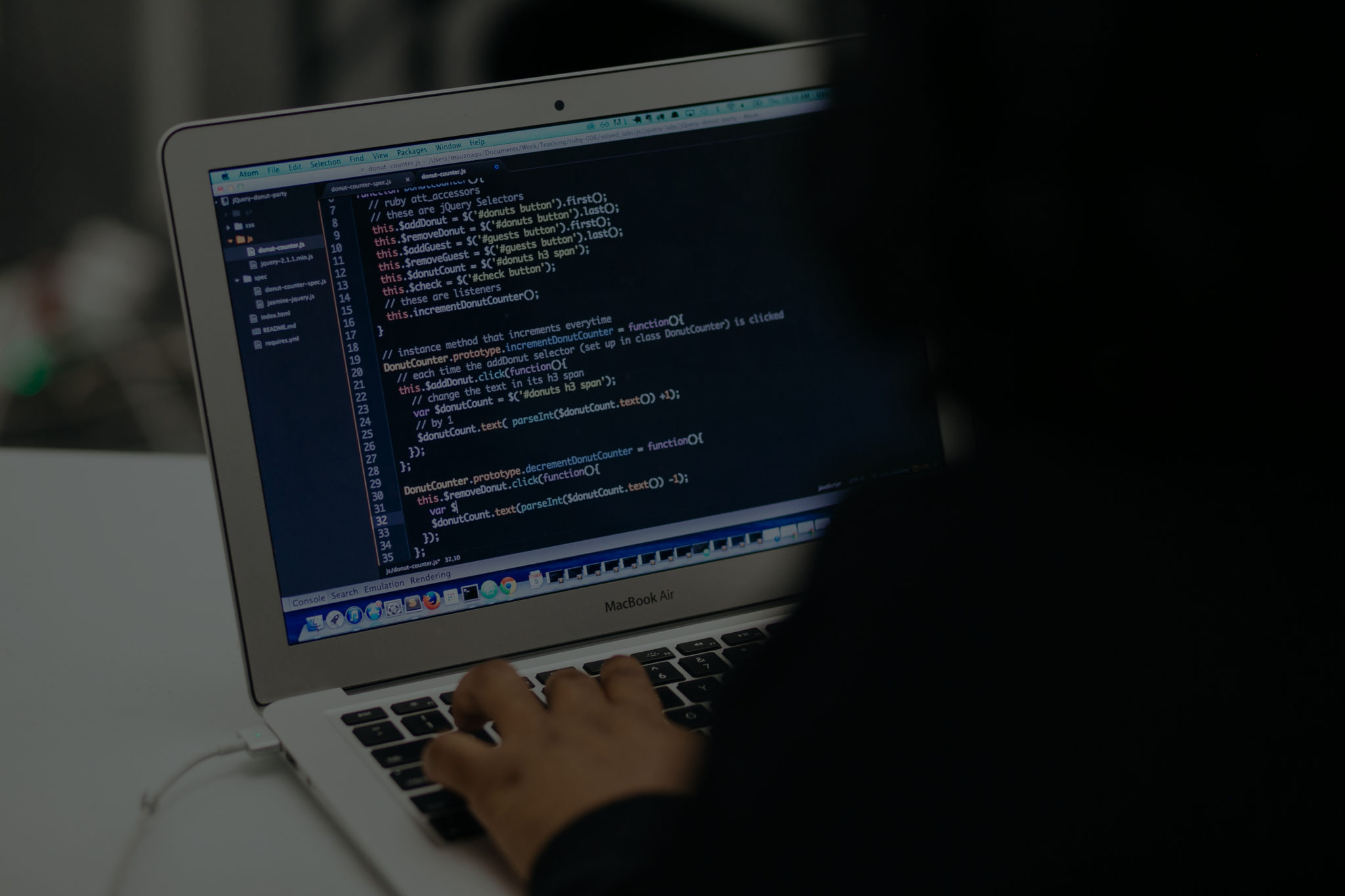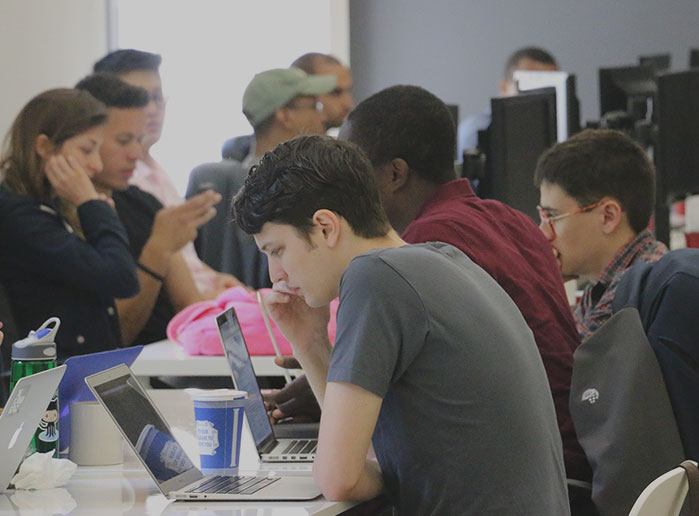After graduating Hunter College in 2014 with dual degrees in Statistics & Applied Mathematics and Dance, Stephanie Guevara didn’t know what she wanted to do. A job in the Executive Development Program at Macy’s presented itself, but after completing the program and spending a year as an Assistant Buyer for Kitchen Electrics and Personal Care, Guevara strongly felt she wasn’t living up to her potential—”I was using neither the quantitative skills nor the creativity I picked up in college,” she says.
She had enjoyed pursuing programming as a hobby, intrigued by coding courses she had taken in college, but she thought only Computer Science majors could become developers. After discovering Flatiron School, she realized that wasn’t the case. Earlier this year, she attended our Mobile Dev Corps, an intensive program designed in partnership with the NYC Tech Talent Pipeline to train low-income New Yorkers with no prior professional coding experience to become production-ready mobile developers.
Guevara took a few minutes away from her new job as an iOS developer at LegalShield to share a bit about her path to a career in programming and her experience at Flatiron School.
H ow did you discover coding? What inspired you to learn it?
ow did you discover coding? What inspired you to learn it?
I first discovered coding as a sophomore in college. I took my first programming class to fulfill a general education requirement without having any idea of what I was getting myself into. I don’t even think I knew it was a programming class. The name of the class was “Intro to Python” and, since I had never heard of Python, I thought maybe we were going to break down the components of a sick BattleBot or something. Prior to then, the last computer class I took was in elementary school where I spent most of the time playing Oregon Trail. But I took the class and absolutely loved it. What I enjoyed most about programing was how technical yet creative it was. There was a lot of heavy technical information that went into writing a piece of code but there was also creative freedom and opportunities to approach problems differently. I was hooked and after that class, I began filling my electives with CS classes.
What brought you to Flatiron School and our Mobile Dev Corps program?
Prior to Flatiron and the Mobile Dev Corps, I saw programming as a career that only Computer Science majors could pursue. For a while, I had resigned myself to keeping programming as a hobby and maintained a connection to the developer community by attending the occasional Meetup. It was through one of these Meetups that I found out about Flatiron School and the Mobile Dev Corps. I received a Girl Develop It Newsletter that mentioned the Mobile Dev Corps and immediately I knew: this was my chance to pursue the career I wanted and change my life. I would have attended Flatiron School regardless because, after doing a lot of research, it came up on top of many other bootcamps out there for its depth of curriculum, rigor, and success rate, but thanks to the Mobile Dev Corps, I didn’t have to take on a large amount of debt, and I was introduced into a great group of individuals also trying to radically change their lives. I could not be more grateful for the opportunity I was given.
What was your favorite part of the Flatiron School experience?
My favorite part of the Flatiron School was the time I got to spend coding and working with my equally-driven and passionate peers. I met the most incredible individuals and I felt just as invested in their success as I was in my own. We created a great, supportive community and I am really proud to have been a part of such a talented class.
What was the biggest challenge you faced when learning to program?
The biggest challenge I faced when learning to program was figuring out what to do when I “hit a wall.” There were many times I would run into a problem I just could not solve, or a piece of code I had no idea how to debug. Ultimately, I had to learn how to Google like a champ but also to give myself a literal and metaphorical break. Instead of sitting there ripping my hair out and telling myself I wasn’t good enough, I had to learn to step back, clear my mind, and approach the problems with a new, positive mindset. I think this is a challenge a lot of new programmers face—we all need to remember to be nice to ourselves.
Tell me about your role at LegalShield. What are you working on? What’s your favorite part of what you’re doing now?
Currently, I am working as an iOS Engineer for LegalShield developing features for the Shake by LegalShield app. We’re coming out with a new build of this app in the very near future. I have had a hand in all of the features and exclusively worked on a number of them, including a dropdown menu that RESTfully connects to the LegalShield API, as well as major styling changes to the app. My favorite part of what I am doing now is that I am learning about and implementing clean architecture in my code. Before working for LegalShield, writing code that just worked was exciting to me; now, writing clean, reusable code is my goal and makes me happy.
Have your past jobs or pursuits informed how you approach the work you do now?
There are three major aspects of my life that influence the work I do now: math, dance, and running. My background in math has given me the logic and critical thinking skills to break down problems in a very deliberate and systematic way. My background in dance has taught me to approach problems creatively without being afraid to think outside the box. In dance, there really is no “wrong” answer and so when you approach problems with that kind of mindset, it is easier to come up with solutions because everything is a possibility and, thus, the possibilities are endless! Running has also been a huge influence on my work. Not only has it been the thing that keeps me sane and allows me to clear my mind when it’s blocked, it has also given me numerous skills necessary to succeed in this profession: drive, patience, and a strong work ethic. I am grateful for all of the experiences I had prior to Flatiron School because I feel like they have made me a more well-rounded programmer.
Any tips for others looking to learn to code?
Practice, practice, practice! You’re literally learning a new language and, just like if you were learning Spanish or French or Mandarin, you need to practice or you will lose the knowledge. Also, teaching is a great way to solidify concepts, so if you’re able to share your knowledge with someone else who is learning, not only are you paying it forward, you’re helping yourself—win win! And I said it before but I’ll say it again: be nice to yourself. Programming is hard! I’ll leave work and my brain will be hurting from thinking all day! This is a hard job and it is hard to learn, so give yourself and your brain a break every so often. You’ll thank yourself.
You can read more about Stephanie’s coding journey at her blog.
Interested in learning to code and moving into a fulfilling tech career like Stephanie? Head over to Learn.co to get started.
Written byJOSH HIRSHFELD
Content Marketing Manager, Flatiron School

